Posts Tagged ‘covid-19’
COVID and the Issues: U.S. Programs
World Relief currently operates local offices in 18 cities across the United States. Our teams are committed to helping new immigrants thrive by providing vital services and building communities of love and welcome. In addition to case management, our U.S. offices offer English language classes, job training and placement programs, legal services, youth mentoring, mental health services and more.
Prior to the COVID-19 pandemic, all U.S. programming took place in person. But in March, everything changed. As the country shut down, so did our physical office locations, and our teams were forced to find a way to bring their very interactive programming to a virtual space.
Today, in the fourth week of our COVID and the Issues series, we’re talking with Jennifer Foy, Vice President of U.S. Programs at World Relief. Jenn discusses the new needs that immigrants are facing in the wake of the pandemic and how our U.S. teams are adapting to meet those needs. In Chicagoland alone, the staff received 500 phone calls in less than a week from immigrants who had been laid off and needed help navigating unemployment and finding new jobs.
It’s been overwhelming and unprecedented. But, as Jenn discusses, the resilience and creativity that is being birthed out of hardship gives us something to hope for.
Come back next week to learn more about how COVID-19 is affecting food security and nutrition across the globe. To join us in addressing these issues visit worldrelief.org/covid-19.

Rachel Clair serves as a Content Writer at World Relief. With a background in creative writing and children’s ministry, she is passionate about helping people of all ages think creatively and love God with their hearts, souls and minds.
COVID and the Issues: Health
Women, men, children and entire communities across the globe have been dramatically impacted by COVID-19. In order to stop the spread of the virus, businesses, land and air transport, as well as essential services, have been forced to lock down.
Without the ability to continue treatment and a six-month disruption in access to antiretrovirals, AIDS-related deaths could double in sub-Saharan Africa in 2020 alone.
80 million children are at risk for contracting preventable diseases because immunization services at many health centers have slowed or stopped.
Essential maternal and child health interventions are being reduced and could result in maternal mortality rising from 8% to 38% and children under 5 mortality from 9.8% to 44.7%.
With no access to these life-saving health services, COVID-19 could undo years of progress. Today, in the third of our six-week series, COVID and the Issues, we’re talking with Allison Flynn, World Relief’s Senior Health & Nutrition Program Advisor. Allison gives an overview of our health and nutrition programs and sheds light on the vital importance of creating and providing access to health care and information to individuals and communities, especially in the midst of a pandemic when the normal channels of access are closed.
Come back next week to learn more about how COVID-19 is affecting our US programs. And to join us as we fight back against the residual effects of COVID-19, visit worldrelief.org/covid-19.

Dana North serves as the Marketing Manager at World Relief. With a background in graphic design and advertising and experiences in community development and transformation, Dana seeks to use the power of words and action to help create a better world. Dana is especially passionate about seeking justice for women and girls around the world.
COVID and the Issues: Child Development and Protection
It is estimated that 85 million more girls and boys may have been exposed to either physical, sexual or emotional violence as a result of COVID-19, and as many as 30 million children’s lives are in danger of secondary health impacts such as exposure to deadly diseases like malaria, lack of immunizations and malnutrition as health systems are overwhelmed by COVID-19 patients. What’s more, millions more children are at increased risk of child marriage and child labor over the coming years as family livelihoods evaporate, pushing families to identify other forms of income that harm children.
Though the numbers are staggering, there is something we can do to reduce the number of children exposed to violence and ensure their communities are places where children can thrive.
Today, in the second of our six-week series, Covid and the Issues, we’re talking with Krystel Porter, World Relief’s Program Advisor for Child Development and Protection from International Programs. Listen as Krystel shares more about how our child development and protection programming is equipping communities to serve, protect and raise healthy, thriving children, even in the midst of a pandemic.
Come back next week to learn more about how COVID-19 is affecting food security worldwide and what we’re doing to help. And to join us as we fight back against the residual effects of COVID-19, visit worldrelief.org/covid-19.

Rachel Clair serves as a Content Writer at World Relief. With a background in creative writing and children’s ministry, she is passionate about helping people of all ages think creatively and love God with their hearts, souls and minds.
COVID and the Issues: Economic Development
We know many of you are concerned about how World Relief’s programs and the vulnerable people we serve around the world have been impacted by COVID-19. It’s been reported that 500 million more people could be pushed into extreme poverty as a result of the coronavirus pandemic.
In the first of our six-week video series, COVID and the Issues, we talk with Courtney Purvis, World Relief’s Senior Program Advisor for the Savings for Life program. Watch as Courtney provides an overview of our savings group program and explains how this program is helping people weather the economic upheaval caused by the pandemic. We promise you will learn a lot, and we hope you feel inspired by the amazing work your continued gifts and partnership will make possible.
Come back next week to hear how COVID-19 is affecting children around the world and how our Child Development and Protection programming is adapting. To learn more about partnering with us as we address the COVID-19 pandemic and its effects on vulnerable people across the globe visit worldrelief.org/covid-19.

Mary Milano serves as the Director of Fundraising Content at World Relief.
COVID and the Issues
It’s been five months since World Relief first began responding to the COVID-19 pandemic. Our U.S. and International offices closed their physical office locations in March, and our teams began innovating new ways to continue serving the most vulnerable in the U.S. and across the globe.
In the coming weeks, we will be sitting down with leaders and program experts from across World Relief’s program areas to bring you an in-depth look at how our U.S. and international teams have adapted to serving their communities throughout this global pandemic. You’ll hear more on the issues of economic development, child development, health, gender-based violence, immigration, food security and nutrition.
To kick off this new series, we wanted to give you a bird’s eye view of the work that’s been happening over the last few months and why your continued partnership in response to the coronavirus is so vital.
The vulnerable populations we serve across the globe are the most at risk of increased hunger, poverty and violence as a result of the social and economic effects of the COVID-19 pandemic. In the coming weeks, the number of people struggling with life-threatening hunger could double, and 500 million more people could be pushed into extreme poverty. Continuing our international development activities is essential as this pandemic evolves.
Hear more from Myal Greene, SVP of International Programs at World Relief.
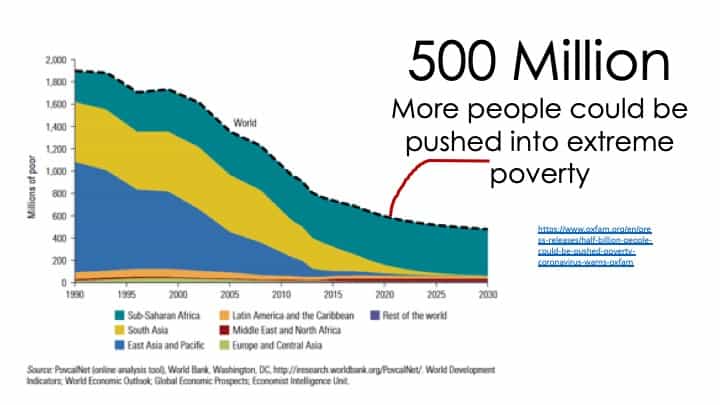
Just like in the U.S., it is now suggested that people wear cloth masks in many of the countries where we work. Our international teams and church partners are working hard to ensure the most vulnerable have access to face masks. Additionally, our teams are adapting their programs and utilizing their vast networks to make sure people have access to vital programs and services.
Hear more from Joanna Kretzer Chun, Director of Program Resources Team.
Listen as Joanna talks about how our international teams are utilizing their networks of church partners to reach thousands of people with important COVID-19 health information.
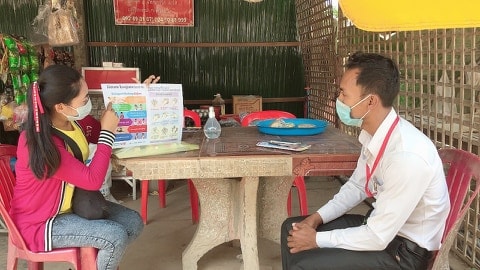
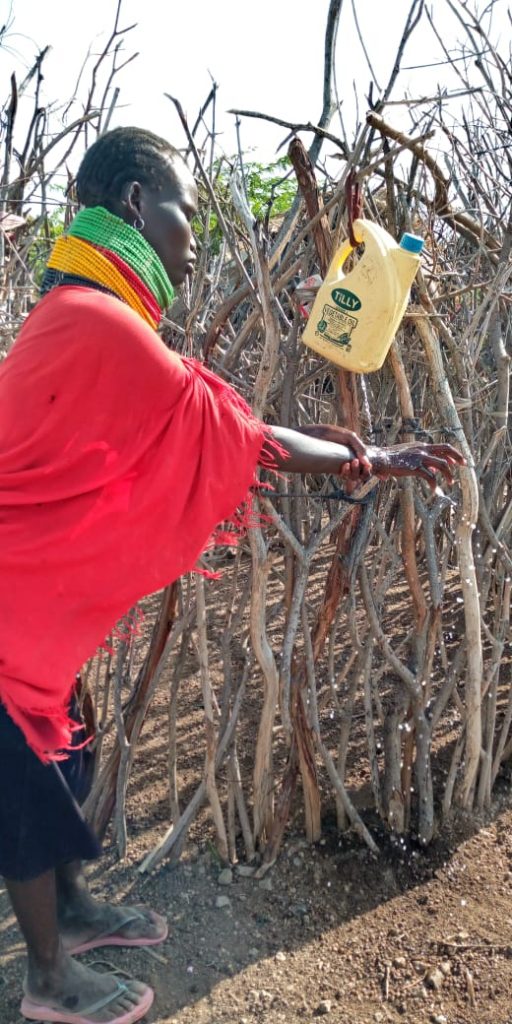
Disseminating accurate COVID-19 awareness and prevention messaging has been a key part of World Relief’s international response. Many of our teams have utilized text messaging platforms to reach hundreds of church leaders with clear and accurate information. In order to reach those living in more remote areas, our teams have had to get creative, using billboards, loudspeakers and radio stations to spread messages.
Hear more from Rhona Murungi, Senior Program Officer and International Operations Director.
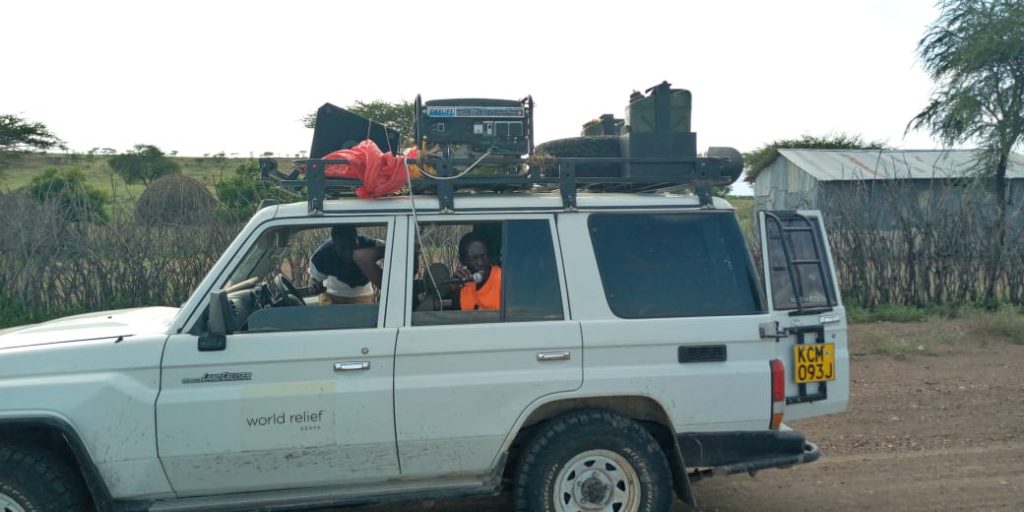
Listen as Rhona talks about the vital role that local churches are playing in reducing the spread of COVID-19.
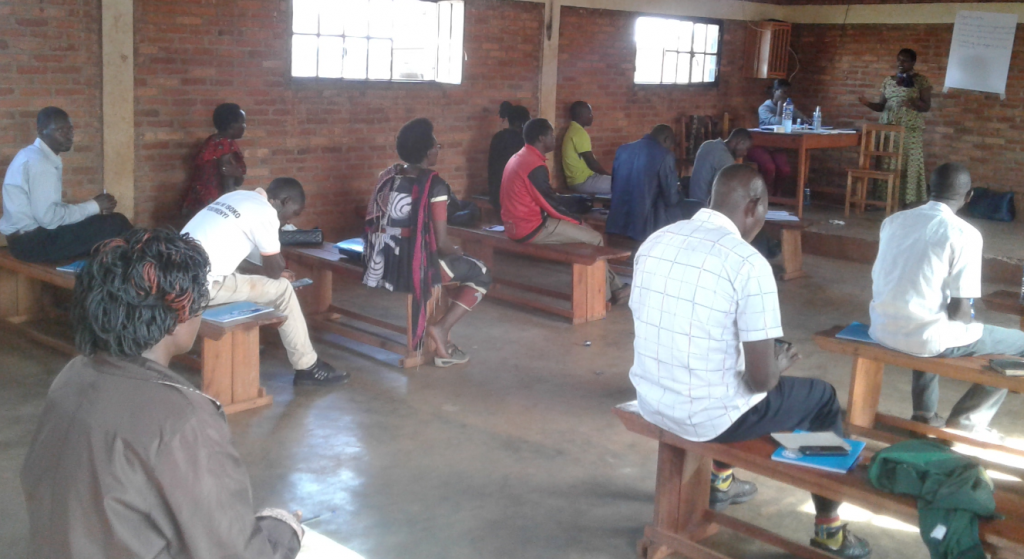
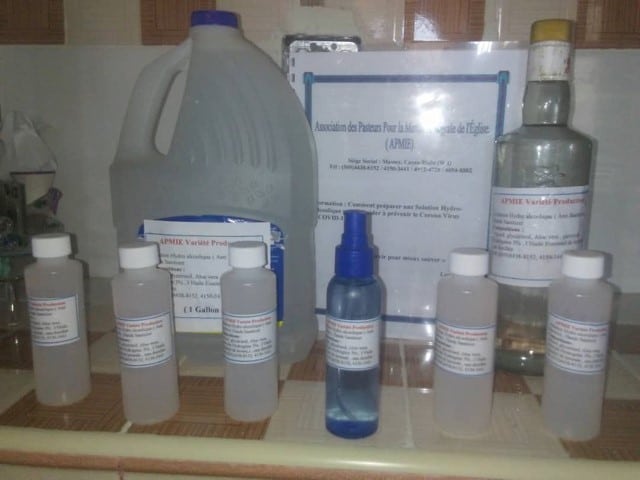
The negative effects of COVID-19 will be wide-reaching. The World Food Program has forecasted a famine of biblical proportions. The number of people facing life-threatening hunger could double in the coming months. Ensuring that affected communities have access to food has been a critical part of our international response.
Hear more from Charles Franzen, Humanitarian and Disaster Response Director.
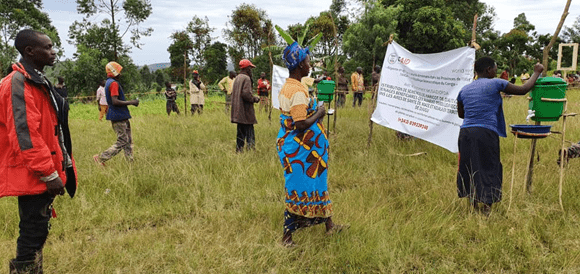
The effects of COVID-19 continue to impact our U.S. teams as well. Many of the immigrants we serve work in industries that have been hardest hit by layoffs and the economic downturn, and our teams are working hard to provide additional services to them during this time of need.
Likewise, with social distancing measures still in place in many states, our teams have continued to innovate by offering many of our programs online. Recently, two of our U.S. office directors wrote about the changes their teams made in order to keep serving immigrants in the U.S.
Read more from Tami McLaughlin, Director of World Relief Fox Valley, and Laura Fontaine, Director of World Relief Quad Cities.
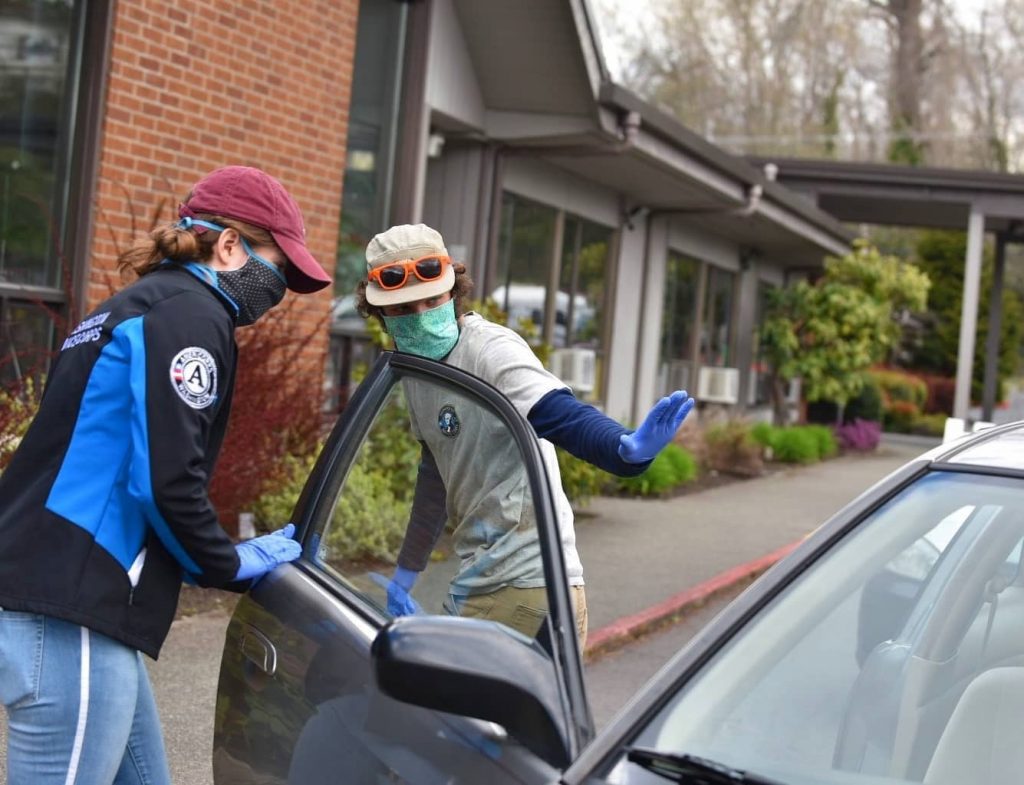

Rachel Clair serves as a Content Writer at World Relief. With a background in creative writing and children’s ministry, she is passionate about helping people of all ages think creatively and love God with their hearts, souls and minds.
Leveraging Relationships to Serve the Most Vulnerable
A Critical Moment
We are facing a critical moment in the global COVID-19 crisis. While many parts of the U.S. are reopening, the crisis continues to unfold in Africa and other parts of the developing world. While official case numbers remain modest in many countries (due, in part, to limited testing capacity) the severe effects of the pandemic are being felt.
Our international staff are reporting growing signs of economic strain and increasing poverty. Economically, local currencies are losing value, bread and other staples are becoming scarce commodities, and many of those living day-by-day on a day’s wages are going without food because they’ve been unable to make sales in local market places. In many parts of the world, families live on less than $2 a day and children struggle with malnutrition.
In April, Oxfam predicted that the pandemic “could push half a billion more people into poverty” in these regions, “[setting] back the fight against poverty by a decade.” Similarly, the World Food Program has forecasted famine of biblical proportion with the potential for the number of people facing life-threatening food insecurity doubling.
In the countries we serve, we are seeing concerning signs. Even though testing capacity is extremely limited, many countries are seeing sharp increases in the number of confirmed cases — some as high as 50% in a single week. And in countries where cases aren’t officially growing at high rates, other signs of virus spread — such as increased cases of pneumonia and other illnesses — continue to rise.
Learning from the Past
I saw firsthand the lasting effects of disease during the AIDS epidemic when children were left orphaned, and when World Relief served communities in DRC severely affected by Ebola. Without action, there is potential for similar devastation from COVID-19. But there is also hope — local churches, community health workers and local leaders are in the fight daily. Like AIDS and Ebola, this crisis is bigger than something each village can take on by itself. With effective global partnership, we can equip these men and women to help prevent exposure, recognize and treat the infected and mitigate the social and economic vulnerabilities associated with COVID-19.
Now is not the time to withdraw from our global responsibility to love our most vulnerable brothers and sisters abroad. Instead, it’s time to lean in with compassion and justice.
Leveraging Relationships
At World Relief, we are committed to serving and empowering the world’s most vulnerable. That commitment was true before the COVID-19 crisis, and it will continue to be true long after case numbers have declined. Our international teams have already taken steps that could greatly reduce the number of deaths worldwide. They’ve trained local churches and health workers, improved health facilities, provided lessons on proper handwashing and educated households about COVID-19 symptoms.
We believe education and awareness will continue to be our greatest ally in fighting the effects of COVID-19. As we’ve seen in the U.S., rumors spread easily, prompting FEMA to build an entire website dedicated entirely to coronavirus rumor control. Internationally, we’ve encountered superstitions in places like Cambodia where scarecrows have been erected in some communities to scare off the virus. In several countries, we’ve heard reports of individuals with respiratory illness fearful to seek treatment or testing because of stigma. As a result, ongoing efforts to saturate communities with accurate public health information through public awareness campaigns is imperative. Leveraging trusted community voices such as religious leaders is essential in overcoming rumors and stigma.
In the past, this approach has proven invaluable in containing disease. At the onset of the AIDS crisis in Africa, World Relief worked extensively with churches to help break stigmas associated with the virus. And in recent Ebola responses, local churches played a critical role in dispelling rumors, locating and protecting the most vulnerable, training medical personnel and educating the community. As we respond to COVID-19, we are continuing to leverage our relationships with over 3,000 local churches in Africa to share critical, accurate information about how the disease is spread and what should be done if someone suspects a case.
Respond With Compassion
While many countries in which we work continue to have a wide range of varying restrictions, our local network of volunteers and community leaders are using creative solutions to continue our existing life-saving and life-improving services, while also honoring social distancing requirements. The already vulnerable populations we serve are the most at risk of increased hunger, poverty and violence as a result of the social and economic effects of the pandemic. Continuing agriculture and food security programs, economic development activities and child protection activities are crucial.
As we move into this next phase of responding to the coronavirus, our local networks will continue to play a vital role in addressing the economic, health and food security concerns that the virus has brought on. Our commitment to empowering and equipping them in this fight remains steadfast, but we cannot do it without the continued prayer and support of our donors.
To learn more about how we’re responding to COVID, go to https://worldrelief.org/covid-19/, and be sure to follow our live updates here.

Myal Greene has a deep desire to see churches worldwide equipped, empowered, and engaged in meeting the needs of vulnerable families in their communities. In 2021, he became President and CEO after serving for fourteen years with the organization. While living in Rwanda for eight years, he developed World Relief’s innovative church-based programming model that is currently used in nine countries. He also spent six years in leadership roles within the international programs division. He has previous experience working with the U.S. Government. He holds B.S. in Finance from Lehigh University and an M.A. from Fuller Theological Seminary in Global Leadership. He and his wife Sharon and have three children.
In Celebration of Resilience
In my work at World Relief, I am constantly reminded of the strength and resilience found in people who have faced great hardship to not only come to the United States, but also to rebuild their lives here.
Now, with a worldwide health crisis and a national reckoning of racial injustice, many refugees and immigrants must once again stand firm in the face of struggle and find power in their resilience.
Take for example, the story of twin sisters, Sona and Hana Barichi, who are not only standing strong for themselves and their families but are working hard every day to provide care for their entire communities as the country continues to struggle with COVID-19.
Sona can’t hug her young son when she gets home from work even though he cries for her and doesn’t understand why. First, she has to take a shower. She leaves her work clothes and shoes in the garage until they’ve aired out for at least 24 hours, and then she washes them separately from her family’s laundry to prevent contamination. She takes these precautions because she is a respiratory therapist at Delnor Hospital in Geneva, IL where she works with COVID-19 patients.
Her twin sister, Hana, works as a phlebotomist for Elmhurst Hospital, about 40 miles down the road, where she, too, cares for COVID-19 patients. Both sisters tell me they are doing their absolute best to help every single person that comes in through their hospital’s door, regardless of race, religion or country of origin. As religious refugees from Iran, they know all too well what it feels like to be forgotten and refused, to be in danger with lives on the line.
Life for Hana and Sona was not always easy or safe in Iran. As non-Muslims, their lives were often at risk because of religious extremists who often terrorized local communities.
“We are not Muslim, so it was hard,” Sona said. “We [had] to take a lot of caution [in Iran]. My uncle’s shop was recently robbed at gunpoint because he is not Muslim. And the government never helps over there. Every day, people are going hungry. People sell their kidneys just to eat. It’s a bad situation.”
The sisters fled their home to escape persecution and were resettled in the United States in August 2006. Soon after, they connected with World Relief Chicagoland who helped them secure their first jobs as factory workers for Home Depot. But despite their good work performance and praise from their supervisor, the sisters were eventually fired because neither of them could pass their English test.
“Our supervisor liked our work,” Sona said. “But we couldn’t pass our English test and he had to let us go.”
That’s when Kara, a World Relief volunteer and friend to the sisters, decided to help out. The women enrolled in an English class in the Chicago suburbs. Hana’s husband, who is American, helped her study in the evenings, while Kara studied with Sona.
“We were working days and nights to learn English,” Sona said. “I was sleeping [just] 2-3 hours a day just so I could have enough time to improve my English.”
“Kara was a big reason I learned English,” she added.
After years of hard work, Sona and Hana were able to improve their English enough to return to school in pursuit of their shared dream of working in the medical field.
“Our dad’s side of the family were all in the medical field,” Hana explained. “My dad was a surgical assistant. He inspired me to be in medicine.”
In 2014, Sona graduated from school and was immediately employed by Delnor. A year later, Hana graduated and was hired by Elmhurst.
“It was always a dream to work in a hospital, and to help,” Sona said. “I see the sickest people get better and go home to live their life. That’s what I love about my job.”
“I feel like I’m here to help every person,” Hana said. She said that people sometimes look at her differently because she’s from a different country and has an accent, but she doesn’t let it bother her anymore.
“I’m here to help everyone no matter what,” she said. “It makes me happy to come to work every day. It makes me happy to help.”
Recently, though, the COVID-19 pandemic has increased the risks and challenges of going to work for both women. The stressors have reminded them of the danger they faced back in Iran, and Hana said she hasn’t been able to see her mom or sister due to social distancing guidelines at her hospital.
“Work is now very stressful,” she said “I do not want to get close to people. Every day, I see someone die. That really affects you. Just the other day, I was taking a COVID-19 patient’s blood, and ten minutes after I finished, he went into cardiac arrest and died.”
“It’s definitely scary,” Sona added. “People are very sick. Many are on oxygen. They need a good two months or more to recover.”
Nevertheless, the sisters continue to show up and help those in need at their hospitals in the U.S. while also helping others back home in Iran.
“We send $100 back home to Iran every month,” Sona said. “We donate [the] money to women who are not working due to the virus and who have children. Women are not as respected as men, and they don’t get jobs even in good times.”
Hana has also become a champion for the rights of her countrymen here in the United States.
“There are lots of language barrier problems with this virus,” she explained. “I know the language barrier is the biggest problem for many [COVID-19 patients]. My hospital has translator lines, but there wasn’t a line for Farsi, the native language of Iran. So, I spoke to the hospital administration and a line for Farsi was added.”
The United States is not just a home to Hana and Sona, it’s a community in which they are deeply invested. So invested, in fact, that Hana plans to go back to school to become a registered nurse once the threat of COVID-19 has subsided so that she can expand her field of care to all patients that arrive at the hospital. Resilience is a trait that doesn’t rest.
*this story was originally published by World Relief Chicagoland.

Rob Carroll serves as Communications Manager for World Relief Chicagoland. Rob’s professional background includes time spent in publishing, design, marketing and communications. He has written and edited for numerous outlets, and he even spent a year as the Managing Editor for a respected peer-reviewed science journal published by Oxford University Press. He views his current work with World Relief as a true vocation — a place where his experience and skill can help the greater good.
It Takes a Village
It was 3 p.m. on a Tuesday afternoon when we got the call. A woman in the Congolese community had contracted COVID-19 — the first of what would turn out to be many cases for the Congolese living in the Quad Cities area. My mind raced with questions as we worked to determine the best plan of action: Does her family have everything they need? Does she understand what the word quarantine means? How many people has she come in contact with? Can we help her while also keeping our teams safe and socially distant?
We were able to connect with her on the phone and talk through the things her doctor had told her. We tried to ease some of her fears regarding the sickness and hoped this would be an isolated incident. Unfortunately, the virus had already started to spread, and over the next several weeks, 60% of the Congolese community would contract COVID-19.
The last several months have been a whirlwind as we’ve sought to manage all the unexpected challenges that have shown up in the face of this global pandemic. While our staff and volunteers have navigated their own challenges working from home, caring for kids and taking in the ever-changing and often confusing news cycle, our clients are even more confused than we are.
This situation is anything but ordinary. To have been forcibly displaced from your home is traumatic enough. But then to arrive in America only to face a pandemic and growing racial tensions can be shocking and isolating. Many of our clients have fled their home countries because of things like violence and ethnic and religious persecution. The events unfolding in America right now are fear-inducing for many refugees.
Similarly, most of our clients come from very high communal societies. Not being able to gather for worship, break bread together or visit a neighbor to help with child-rearing is a foreign and bizarre concept. It’s culture shock on a whole new level, and it’s why our team is so committed to regularly checking in on our immigrant clients and innovating new virtual programs in the midst of this crisis.
At World Relief Quad Cities, we offer a number of different services including Citizenship Classes, Immigration Legal Services, English Language Programs, Youth Mentoring and a culturally appropriate food pantry (meaning that in addition to fresh fruits and vegetables found in most grocery stores, our food pantry also contains many of the staples our immigrant neighbors would have eaten in their home countries).
Prior to the arrival of COVID-19, all of these services were offered in-person. Closing our physical office in mid-March meant we had to make major adjustments to our service model so that our clients could still access the resources they needed and feel connected to their new community.
Our citizenship classes were put on hold, and our food pantry transformed into a drive-through service. The second Monday of every month, around 300 clients pull up outside our office and we hand them a bag of food through their car door. For clients without cars, we deliver the food directly to their homes.
Likewise, our English classes and youth mentoring programs have become a hybrid of online learning mixed with work packets that we put together and deliver to our client’s homes. The packets include fun activities that families can do together to learn English. We send out new packets every two weeks, and we have been incredibly grateful for the ways our volunteers have stepped up to serve in these new ways.
These last three months have been a challenge I never imagined I would have to endure — working remotely alongside my husband who is also working remotely, trying to homeschool three kids while also making sure everything at World Relief Quad Cities stays on some sort of a normal schedule has been a lot to handle. But right alongside these challenges I’ve seen hope, strength, resilience and community rise up, and as a result, we’ve been able to establish new partnerships that may not have happened without the forced need of COVID-19.
The Rock Island Health Department has come alongside us to develop COVID-19 messaging to help educate our immigrant communities. UnityPoint Health has partnered with us to assemble and distribute boxes of masks, gloves and cleaning supplies to our clients in need. We’ve collaborated with Community Health Care to organize a COVID-19 testing site, and we’ve been awarded funds from organizations that have never donated to World Relief before. Those funds will allow us to reach more immigrant and refugee families with important COVID-19 information.
There’s an old Nigerian proverb that says, “It takes a village to raise a child.” I think the same holds true for a non-profit organization like World Relief. It truly takes a whole community to support and serve the most vulnerable — especially in times like these when sickness and the realities of racism threaten the new foundation our immigrant neighbors are trying to build. The generosity we’ve experienced throughout this pandemic has been nothing short of a miracle, and my hope is that refugees and other immigrants in our community experience it as a sign of love and welcome amidst the chaos.
Our church partners have been beyond generous, awarding us with grant money from their endowments and donating extra funds for the food pantry. We had a volunteer ask for bikes on social media and within two days we were able to deliver over 30 bikes to families in need of safe transportation. We also had a generous group of teachers from the Rock Island Head Start program gather money to purchase food for several of our families who recently lost loved ones in a tragic car accident.
As we move forward into a season of reopening and all of the unknowns that come with it, my hope is that morale remains high and our commitment to one another remains strong regardless of what comes our way. I pray that my team would know how valuable each of them are and how grateful I am for the unique contributions each of them brings. I pray our clients would know that we will be here with them through every step of this journey. And I pray that the church would rise up in its commitment to the most vulnerable, remembering that true greatness comes when we lower ourselves to lift others up.
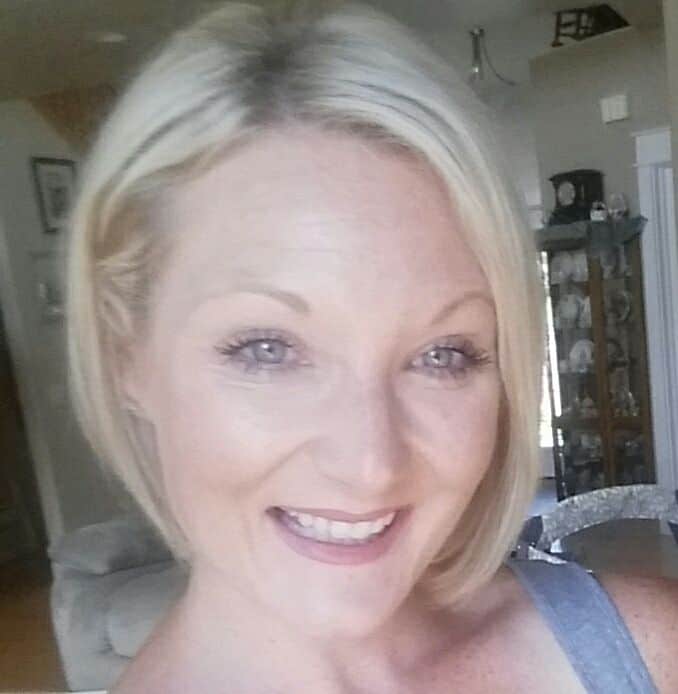
Laura Fontaine is the Director of World Relief Quad Cities and has been working with World Relief since April 2018. Laura grew up in various countries throughout Eruope as an Army Brat, which ignited her passion for working with and serving people from different cultures. She went on to study abroad in London, conduct research on development and security in South Africa and teach diplomacy and economics at the college level in China. She holds a B.A. in International Relations and History, and an M.A. in International Security and Arms Control with an emphasis in Strategy.
LIVE UPDATES: World Relief Responds to COVID-19
As the COVID-19 pandemic continues to unfold, its effects on individuals and communities across the globe only grows. Though our world may be changing every day, our mission at World Relief remains unchanged.
For over 75 years, we’ve been responding to the world’s most pressing humanitarian problems, and we are committed to supporting those who are most vulnerable during the pandemic and empowering local churches across the globe to the same.
Currently, we are responding to the novel coronavirus in 10 countries across the globe, the U.S. included. Follow along below for live updates on how we are supporting and empowering those communities at this time.
International Response
Updated on June 12th
- DRC
- Prevention messages continue to be given by volunteers while respecting social distancing.
- Malawi
- Follow-ups have been made in 20 local churches out of the 400 that received COVID-19 materials to ensure there is continuous delivery of the prevention messages in Mzikubola and Mbelwa.
Updated on June 4th
- Burundi
- In collaboration with our Templeton project stakeholders, we installed water tanks at community facilities and taught about the importance of handwashing.
- Haiti
- Churches in all areas continue to make masks with World Relief support. The current target is 7,500 masks. This week, an effort is being made to reach our most remote churches and especially our savings groups.
- Kenya
- World Relief continues to support staff, volunteers and our church networks with protective gear such as masks, sanitizers and soap during COVID-19 trainings.
- Rwanda
- In the Ngoma Church Empowerment Zone, church leaders continue to support the most vulnerable with food and other basic needs items.
Updated on June 1st
- Burundi
- We provided hand washing systems at each of our training centers along with posters to remind people of key times to wash their hands.
- DRC
- 425 men and 735 women were sensitized on prevention measures in the Kako and Kiwanja church networks.
- Rwanda
- In our Musanze church network, church and local leaders were given COVID-19 lessons in small groups to allow for social distancing. In addition to prevention lessons, we discussed how churches can continue to reach out and support the most vulnerable within their communities.
Updated on May 28th
- Cambodia
- Community-based staff are still visiting households, mostly the participants in the program. Some visits are for training, some are motivational, some are to continue sharing of COVID-19 prevention messages.
- Haiti
- We are using a phone tree to stay connected with pastors and volunteers during stay at home orders. This will be an encouragement to the pastors and volunteers while also helping our staff to remain meaningfully engaged. Our Haiti staff is also using this time to take an in-depth look at curricula and resources and brainstorm about ways to innovate our programs. We may not be able to do field work currently, but we can be better prepared to work more effectively in the next season!
- Rwanda
- In our Ngoma Church Empowerment Zone, our agriculture beneficiaries were happy to be able to continue farming activities during COVID-19 confinement and are now harvesting their crops with increased production. In our Musanze Church Empowerment Zone, savings group committee members met to discuss how to reopen savings meetings while implementing COVID-19 prevention measures.
Updated on May 26th
- Burundi
- Over the past week we communicated twice via text messages with 183 church leaders, reminding them of key practices to prevent the spread of COVID-19.
- DRC
- 619 volunteers were trained on different methods of combating COVID-19 in our Kako and Kiwanja Church Empowerment Zones.
- Malawi
- In Chitipa, pastors and leaders from 16 partner churches in our network were trained on how to deliver COVID-19 prevention messages to their congregations using the sermon guide that World Relief developed.
Updated on May 22nd
- Haiti
- One of World Relief’s church networks in Laurent has learned how to produce hand sanitizer. They have been supplying some of the local markets at a time when the product cannot be easily found.
- Churches in Les Cayes have begun producing masks.
- Burundi
- 107 people from our Savings for Life programs in Buraza received messaging about the importance of Covid response and proper handwashing.
- Malawi
- In Ntchisi District, 112 people from 23 churches were trained on COVID-19 prevention. These people then reached out to 560 households to reinforce regular handwashing.
- In order to strengthen families’ responses to COVID 19, over 3,070 Families for Life program mentors and couples were trained on COVID 19 facts and prevention measures in the Mzimba, Nkhotakota and Ntchisi Districts.
- Rwanda
- In the Nyamasheke church empowerment zone, outreach volunteers were trained on Covid-19 prevention measures. In the Bugusera church empowerment zone, one-on-one meetings were conducted with church leaders to discuss disease prevention measures.
Updated on May 15th
- South Sudan
- Last week alone, World Relief reached over 59,000 people with Covid-19 prevention messaging. This included school children, pregnant mothers, farmers, savings groups, prison staff, pastors and other community members.
- Sudan
- In the last 2 weeks, 14,000 people have received COVID-19 prevention messages using microphone/mobile broadcast systems.
- DRC
- This week included sensitization on Covid-19 prevention for SFL members, SGBV club volunteers and mothers of victims of sexual violence.
- Kenya
- This week Covid-19 sensitization training took place in three church networks (Nkurumani, Torosei and Oltepesi).
- Rwanda
- Digital savings groups are now in full effect. Church networks in Rwanda are adjusting programming in response to the heavy rains and are adapting so that their records can be kept on tablets.
Updated on May 7th
- Burundi
- Packages of COVID-19 prevention materials have been sent to churches, Savings For Life groups and committees, and CNC meetings. Many are being trained in COVID-19 prevention messaging.
- Cambodia
- Our Cambodia team is expanding their outreach to home visits in areas not previously reached.
- Malawi
- In Chitipa District in the far Northern Region of Malawi, 6 out of the 13 church networks have been oriented on COVID-19 lessons for churches and pastors. Church leaders have reached out to 1,790 local church members.
- Rwanda
- The Rwanda team met with beneficiaries, pastors and local leaders to discuss partnership activities regarding COVID-19 prevention.
- South Sudan
- Our South Sudan office has critical nutrition, water and sanitation supplies that are awaiting clearance by the government for transport.
Updated on May 4th
- Burundi
- Hand washing demonstrations and COVID-19 messaging were shared using social distancing during church mobilization training in the new Church Network in Nyabihanga Commune.
- DRC
- We took advantage of already planned agricultural programming in the province of Tanganyika to spread COVID prevention messaging. Using songs played through a loudspeaker installed on our vehicle, we circulated in villages raising awareness and reaching 4,291 people.
- 3,201 people were reached with prevention messaging through outreach to local churches in our Kiwanja, Mugunga, and Kako church networks.
- Haiti
- Savings For Life groups have largely adjusted to the gathering size restriction and are being equipped with handwashing stations for their meetings. Feedback from our local church networks indicates the need for more soap and sanitizer, masks, immediate food assistance and seeds for the upcoming planting season.
- Malawi
- World Relief Malawi continues its operation in its rural communities, intensifying raising awareness on the facts of COVID 19.
- Rwanda
- World Relief reopened offices since the lockdown was lifted down by the government. They spent the day planning how to resume field and office activities while fully following COVID-19 measures of prevention.
Updated on May 1st
- Burundi
- In Giheta, an area in which we haven’t yet had much influence, church leaders organized gatherings on their own and shared COVID-19 prevention messaging with 257 people. This was made possible because World Relief staff and volunteers shared flyers on COVID-19 prevention.
- Malawi
- World Relief is continuing its operation in rural communities and provided the COVID-19 materials to 237 churches (192 Mbelwa, and 45 in Mzikubola), representing nearly 50% of the total churches that we work with in the Mzimba District.
- Rwanda
- In the Ngoma church networks, 350 farmers were given beetroot, carrot and snap bean seeds. This activity was done on three different sites to avoid gathering too many people in one place, and social distancing was used.
- South Sudan
- Cloth masks are now being recommended by the South Sudan Ministry of Health for use by the general public. World Relief is procuring two cloth masks for each of our staff and volunteers. World Relief has also secured face shields for healthcare workers.
Updated on April 30th
- Burundi
- Volunteers reached 10 savings groups (236 members) that normally gather on Monday afternoon twice a month, in Makebuko commune and delivered prevention lessons while employing social distancing.
- Malawi
- A total of 22 local churches in Mndola and Chagunda Church Networks have benefited from the messages, posters and leaflets that were given out. Eight village headmen, together with their village development committees (VDCs), seven community facilitators, 10 lead farmers and 12 mentors for child development have been trained to disseminate COVID-19 messaging.
- Rwanda
- 639 pastors have access to WhatsApp and are able to receive and read messages sent to them regarding COVID-19. In Nyamasheke and Karongi church networks, 254 beneficiaries and 168 beneficiaries respectively were supported by the church and World Relief with food and hygiene items.
- Sudan
- World Relief is purchasing handwashing facilities and materials needed for crowd control during food distribution.
Updated on April 24th
- Haiti
- Churches are expressing great concern for “the crises after the crisis,” most notably agriculture/food security, and economics. These are the issues that their communities are raising. This is where they feel the most equipped to respond, if only they could find the resources.
- Kenya
- Field staff are actively engaged with activities around COVID-19 working hand-in-hand with the Kenyan Ministry of Health to get protective gear to all staff, volunteers and stakeholders directly working with us during community sensitization on COVID-19.
- Malawi
- 6 community promoters were trained in COVID-19 messages, and they have reached 146 FARMSE volunteers, 12 FFL Mentor Couples, 94 CNC Members, and 4 Group Village Headmen.
- Rwanda
- The Rwanda office has facilitated a WhatsApp group of pastors which has now reached 328 members. This group is supporting families in their areas, and plans to support 3,500 people total.
Updated on April 22nd
- Malawi
- 58 churches have received posters for their walls on facts and key prevention measures of COVID -19 prevention messages.
- 40 church leaders who were given a bucket and basins for handwashing were also trained in construction of hand washing facilities using locally available resources.
- These church leaders have so far reached about 1080 households.
- South Sudan
- We’ve now reached 784 households with COVID-19 key messages during house-to-house visits in the community.
- We’ve also reached 457 individuals (19 male; 438 female) with COVID-19 key messages in nutrition.
Updated on April 19th
- Rwanda
- We have provided food and hygiene kits for 29 Church Network Committees (over 400 individual churches) to give to the most vulnerable in their communities.
- We shared COVID-19 messages with pastors who have smartphones.
- Cambodia
- Nearly all villages where we conduct home visits have received an initial round of COVID-19 prevention lessons.
- South Sudan
- We distributed seeds to 4,009 households.
- We set-up handwashing stations in compliance with international/national recommended measures and created roped off lines to promote social distancing.
- Sudan
- We are in the process of purchasing food items in bulk, which will be distributed to 500 refugee households.
- Malawi
- We are preparing to roll out prevention messages through public addresses and brochures.
Updated on: April 12th
- Burundi
- 483 community leaders (including local officials, church leaders, volunteers) have been trained to share virus prevention messaging this week. They will be key influencers in the community.
- Malawi
- We are supporting a massive awareness campaign on COVID-19 through our partnership with Y Malawi.
- 40 Churches were given handwashing buckets with soap as a startup kit.
- Sudan
- We are supporting around 500 refugees in Khartoum to mitigate the economic and social impact of COVID-19 on refugees.
- We obtained $150K from the OCHA Emergency response fund to create awareness on COVID-19.
- We obtained WASH (water, sanitation & hygiene) support to benefit around 1.3M people in Central Darfur and 247,826 people in West Darfur.
Updated on: April 5th
- Cambodia
- 3,100 households in 155 villages have received COVID-19 prevention messaging thus far.
- Congo
- We are repurposing handwashing stations created for Ebola and leveraging our messaging networks in North Kivu, Ituri and Tanganyika Provinces to improve protection from COVID-19.
- Kenya
- Over 8,000 people have received social behavior-change messaging in Turkana and Kajiado counties.
- Haiti
- Over 100 Outreach Group volunteers are being trained in COVID-19 related messaging, which will reach 400+ households.
U.S. Response
In addition to continuing much of our vital programming like English as a Second Language (ESL) classes and Immigration Legal Services (ILS) virtually, our offices are also finding new ways to serve the most vulnerable in their communities during the COVID-19 pandemic. Here’s some of what they’ve been up to recently.
Updated on June 12th
- Memphis
- Our Resilient Sewing Program for refugee women has continued remotely since mid-March. The ladies have sewn hundreds of masks, but more recently they have been working on new projects while expanding their skills and proficiency.
- Triad
- Throughout the challenges of COVID-19, we have continued to serve our community in ways that are responsible and safe. As North Carolina eases restrictions and we prepare to re-open our offices, the health and safety of our clients and staff remains a top priority. But we couldn’t do it alone! Churches, volunteers, and donors have stepped up to supply masks, gloves, sanitizer, cleaner, and clear barriers that will help us keep serving our community while protecting one another. Thank you for continuing to love your immigrant, refugee, and survivor neighbors!⠀
- Chicago
- Thank you for helping to fund 620 face masks made by Re:New refugee Artisans for refugees resettled by World Relief Chicagoland in honor of World Refugee Day on June 20th. Re:new is 10% of the way toward their goal!
Updated on June 4th
- Chicago
- Two brothers from Afghanistan are using their tailor shop to make affordable masks for their neighborhood so that even those with little money or resources can stay protected during COVID-19.
- To celebrate World Refugee Day June 20, Re:New and World Relief in Chicagoland are collaborating to bring awareness to the global refugee crisis while dealing with the repercussions of COVID-19. Re:new donated 620 masks made by refugee artisans for refugees who are being resettled by World Relief. Thank you Re:new!
- Triad
- This week, Mercy Hill Church delivered masks, cleaning supplies, and toilet paper for us to distribute to our client. The Summit Church dropped off care packages for some of the clients of our Anti-Human Trafficking Program. Community Bible Church came by to help make plexiglass shields for our reception desks and meeting spaces to prepare for re-opening our offices. We’re so thankful for our amazing church partners!⠀
- North Texas
- On Saturday, we distributed 300 boxes of food to families in the Kennedale community! Weekly, we are seeing thousands of families be fed through partnerships we have with churches across North Texas.
Updated on May 29th
- Chicago
- Over the last month, through collaborating with Exodus, New Life Albany Park, and local food banks, 30 volunteers have made over 80 grocery deliveries to 35 World Relief Chicago families, delivering an estimated $4,100 of dry goods and fresh items.
- Durham
- Helped provide food to youth in the tutoring program (150 youth).
- Fox Valley
- Currently providing emergency relief to families who lost jobs or face hardships to help them get through until other assistance takes effect. This includes food, rent, utilities, etc.
- North Texas
- Partnering with two food banks and the Salvation Army. In the past two weeks, we have distributed 15,000 boxes of food with the help of church volunteers. This has been an ongoing ministry, but is quickly increasing in size each week.
- Seattle
- Served 20,000 people so far since the start of the COVID-19 pandemic. We are distributing boxes that feed a family of 4 for 3-4 days. We are averaging about 1,000 families per week right now.
- Spokane
- We are connecting churches and local groups to communities in need. For example, one church partner is supporting a couple dozen families at one apartment complex with some weekly food deliveries.
- Triad
- We are receiving regular monthly food deliveries from the Salvation Army (ongoing for 2+ years) that are available to families in need. The local community is aware of the resources. Recently, we have also coordinated with local organizations to distribute 2,000 pounds of rice and staples to immigrant families experiencing hardship.
Updates on May 28th
- North Texas
- We are working with Compass Church in Colleyville and 35 other churches in North Texas to distribute 7,500 boxes of fresh produce and food weekly to families across multiple cities.
- Seattle
- In the span of only weeks, we expanded from 300 to over 800 boxes of food and supplies distributed every week. Families who need them also receive other essentials such as diapers, wipes, and feminine products.
Updated on May 22nd:
- North Texas
- 400 families were served on a single Saturday through Normandale Baptist Church’s food distribution. Our friends at the Texas National Guard also came out to help!
- Spokane
- Last week, the WEAVE team sewed their 1,000th mask! Six weeks ago, we launched a mobile branch of the WEAVE program, empowering refugee sewists to use their craft skills to give back to the community. The “WEAVE-mobile” makes weekly deliveries of supplies to sewists and takes completed masks to those in need. Local donors have not only provided meaningful work for WEAVE sewists, but have played a huge role in outfitting Spokane with PPE for the coming months.
Updated on May 15th:
- Chicago
- Last year, volunteers from The Brook church agreed to host a World Relief English class, but then the pandemic hit and they never got to do that. So instead, they’ve put together COVID-19 care packages for immigrants and refugees, letting the students know they care about them even with English classes at The Brook on hold for the time.
- SoCal
- 20 families in Orange County received Art from Home kits this week.
- The application process for Disaster Relief Assistance for Immigrants (DRAI) program starts on May 18th. This program seeks to provide financial assistance for immigrants in California affected by COVID-19 and did not qualify for other forms of relief.
Updated on May 8th:
- Durham:
- Kjerstin Lewis, our ILS Program Manager, is advocating for immigrants from North Carolina who are being detained in a Georgia facility. We are asking others to join us in advocating for the release of nonviolent detained immigrants as a matter of public health in light of the pandemic.
- North Texas:
- American Myanmar Mission Church, one of our church partners, made hundreds of masks to donate around Tarrant County.
- Southern California:
- In the months of March and April, World Relief SoCal helped renew more than 85 EAD cards in partnership with the California Department of Social Services.
- Seattle:
- This week we distributed 510 boxes of food, gathered supplies for in-home learning kits for families and helped 12 people with immigration legal services.
Updated on April 30th:
- Triad:
- Earlier this week, we received an amazing donation of rice from our friends at Rise Against Hunger. With the help of local immigrant churches and our wonderful volunteers we’ve distributed all 2,000 pounds of rice to families in need.
- North Texas:
- World Relief North Texas is continuing to serve the community during COVID-19 through direct cash assistance, emergency rent assistance for our most vulnerable, food and supplies, as well as continuing our regular services remotely like immigration legal assistance, employment counseling and youth mentorship.
- Sacramento:
- Last week we launched a COVID-19 community response fund and we have already seen a generous response. We are looking to raise $30,000 to support refugees and immigrants in Sacramento. We have a donor willing to match up to $10,000 of gifts made!
- Memphis:
- Two ladies have sewn hundreds of face masks after a volunteer shared a YouTube video with them and sourced fabric.
Updated on April 20th:
- Spokane:
- We launched the #CARESforOthers campaign, inviting people who do not need their stimulus check to supplement their income to donate a portion of it to help neighbors in need.
Updated on April 16th:
- Triad:
- Our team has adopted a Holistic Community Care Plan, which connects families with the essentials they need through regular phone check-ins, continued access to mental health services and teletherapy, assistance with the transition to online schooling and access to virtual English language practice.
- Seattle:
- We are providing non-perishable grocery distribution to community members. Grocery boxes will provide food for a family of four for two days.
- North Texas:
- Burmese refugees participating in our women’s sewing initiative made 150 masks to deliver to the Texas Oncology Cancer Clinic.
- Durham:
- Several of our immigrant clients have lost their jobs due to the coronavirus. We are remotely working to help them secure new employment as well as assisting with unemployment paperwork.
- Sacramento:
- Our education team has teamed up with local elementary schools to distribute laptops to students without access to computers for remote learning.
- Memphis:
- One of our church partners is delivering groceries to immigrant families who do not have access to a vehicle to drive to the local food pantry.
Voices from the Field: COVID-19
Over the last several months, our International Country Directors have recorded video messages to update us on how things are going for their teams and beneficiaries and to encourage those of us living in the U.S. In times like these, we are grateful for technology that keeps us connected as we weather this pandemic together.
You can view their messages below.
Updated on May 5th
Democratic Republic of Congo
“Nothing is impossible with God.” – Jean Nyandwi
Currently, DR Congo has nearly 2,000 known cases of COVID-19, and the number continues to rise. Country Director, Jean Nyandwi, recently connected with some of our U.S. staff and church partners to update them on how Congo was dealing with the growing crisis.
Early on, Jean and his team took advantage of an already planned agricultural program to spread COVID-19 prevention messaging to over 4,291 people. The team continues to spread virus prevention messaging by utilizing our vast network of church partners and program participants. Though the threat of the virus is still very real, Jean offered some words of encouragement at the end of his call. Watch the video below to hear what he had to say.
Updated on April 8
Kenya
“Together, we are still making an impact.” – Elias Kamau
Kenyans are very relational people, and like many in the U.S. they look forward to the day when social-distancing is a thing of the past. Country Director Elias Kamau sent us an update asking for prayer and outlining the ways World Relief Kenya is adjusting its programs, partnering with the Minister of Health and utilizing its network of churches to reach thousands of people across Kenya.
Updated on March 27
Rwanda
“This is my prayer for you. And I ask that you continue to pray for us too.” – Moses Ndahiro
In March, Rwanda issued a shelter-in-place order. Country Director Moses Ndahiro said that the team worked quickly to establish virtual offerings for some of their programs. Moses’ encouragement from Philippians 4 reminds us to continue with a posture of prayer as we move through the unknowns of this season.











